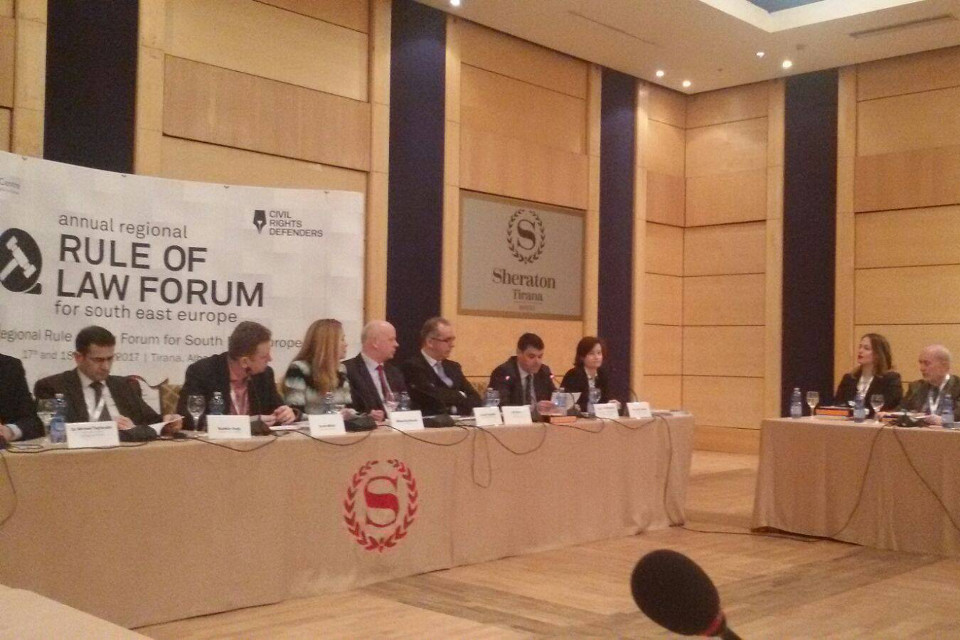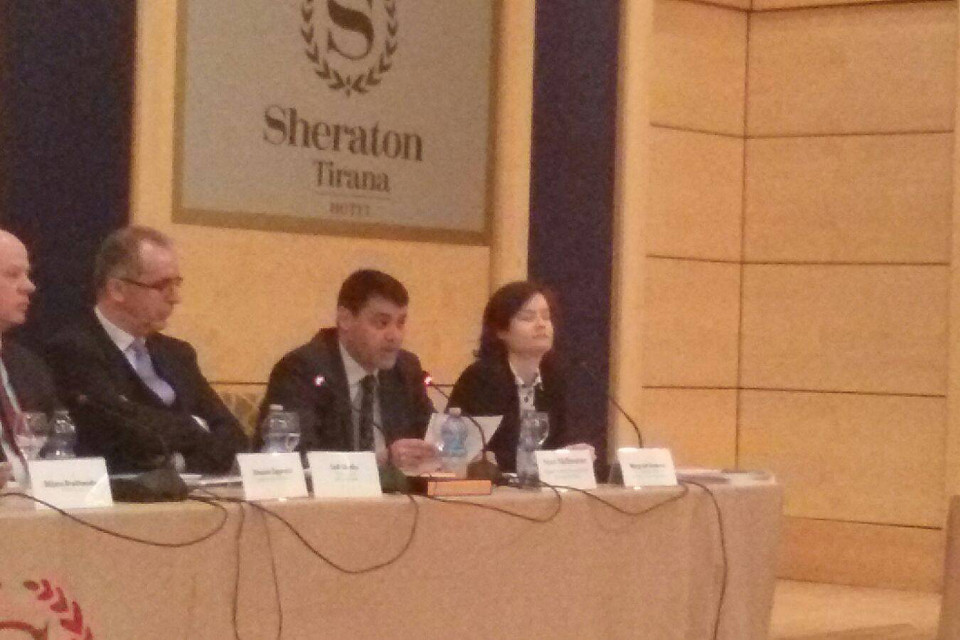Deputy Head of Mission’s remarks at 4th Rule of Law Forum for Southeastern Europe
Mr. Sean Melbourne spoke about the critical importance of Freedom of Expression in democratic societies and its responsibilities.

The timing of this Forum could not be better, in my view, given developments in Albania and the Western Balkans more broadly.
The topic of this year’s Forum is Freedom of Expression, which is an issue of critical importance for long established democracies like the UK just as much as for newly established ones like Albania. The United Kingdom supports and champions freedom of expression. But it comes with responsibilities. It is a delicate and fragile thing that needs to be treated with respect. It is not an excuse to verbally abuse opponents or people who have different opinions or attitudes.

Deputy Head of Mission’s remarks at 4th Rule of Law Forum for Southeastern Europe
Unfortunately, some politicians believe that they can say what they want in the name of democracy. Words such as ‘criminal’, drug addicted’ and ‘corrupt’ are commonly used to describe political opponents here in Albania. Appeals for violent reactions such as ‘Pierce the tires, break the windows, drag from their offices those who breach your rights” are uttered without regard for the principles of freedom of expression as are addressing opposition MPs with phrases such as ‘you are like slaughtered chickens’. All real examples which damage rather than promote democracy.
Of course, this is not solely an Albanian problem or phenomena, other countries face these challenges including the UK where, according to statistics, hate speech crimes saw an increase after the Brexit referendum. Nor is it new. Europe has been struggling with this for most of the last century.
Politicians should understand that these kinds of expressions cannot be disguised under the pretext of ‘freedom of expression’. They might consider this vocabulary to be part of their normal political discourse, and they might use it for their political interest and gain, but this type of language aggravates the political and social situation. It damages the very society that the politicians claim they want to build.
This year, Albanians will once again go to the polls for a national election. The political parties must exercise freedom of expression responsibly to secure and maintain a calm political and social atmosphere which allows voters to properly evaluate the choices in front of them. Voters must be allowed to base their decision of who to vote for on facts and policies not on aggressive rhetoric which distracts attention from the real issues that Albania faces.
And it isn’t just in “real life”. The responsibilities that come with freedom of expression are just as true in social media, perhaps even more so. This is one of the main mediums where hate speech and bullying takes place sometimes with tragic consequences. It is all too easy to forget that behind each social media account is a person, all too easy to dehumanise people, all too easy to abuse them. If it isn’t acceptable to say something to someone’s face then it isn’t acceptable to say it on social media either.
Albania has an amazing record as a peaceful and tolerant country where people from different religions respect one another’s beliefs. Albanians have a reputation for great hospitality. There are many examples of Albanians going to extraordinary lengths to help people in times of danger.
But the country faces a deep polarization and division based on political affiliation. There is nothing wrong with holding opposing political views and expounding them loudly from the rooftops. That’s democracy. But freedom of expression comes with responsibilities. I hope that as 18 June draws near all of the politicians, from whichever party, remember that.